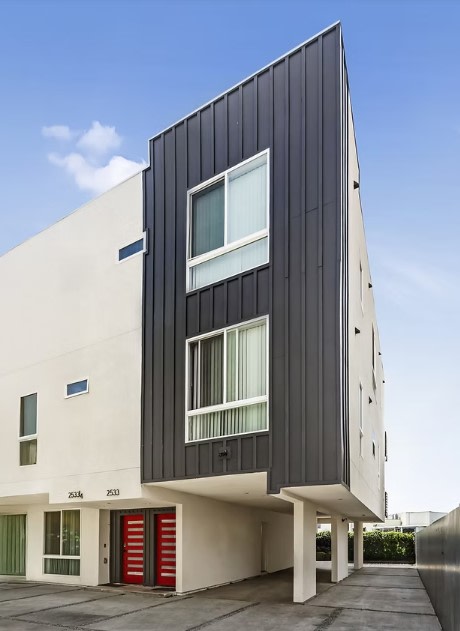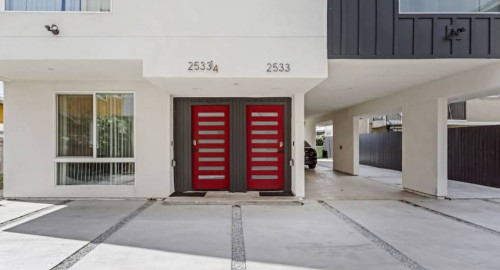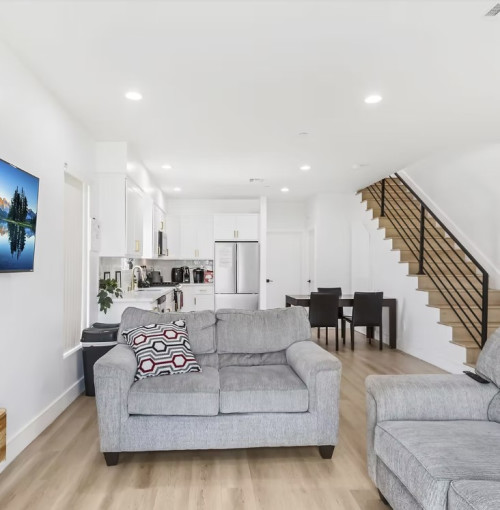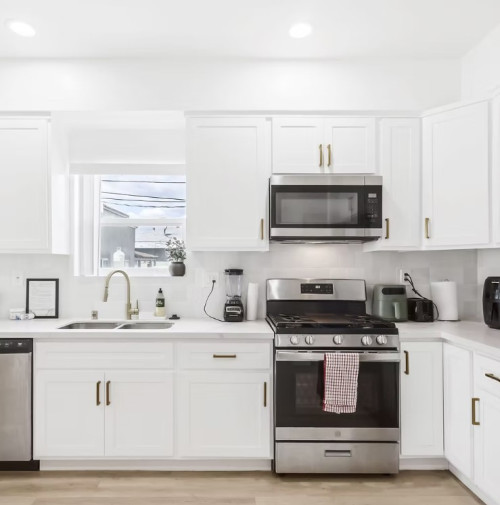






Gracious Wellsprings Spaulding Avenue
Treatment Focus
This center primarily treats substance use disorders, helping you stabilize, create relapse-prevention plans, and connect to compassionate support.
Primary Level of Care
Transitional housing designed to support individuals recovering from substance use disorders offering a safe, supportive and structured environment for practicing long-term sobriety, while reintegrating back into daily living.
Claimed
Recovery.com has connected directly with this treatment provider to validate the information in their profile.
Treatment Focus
This center primarily treats substance use disorders, helping you stabilize, create relapse-prevention plans, and connect to compassionate support.
Primary Level of Care
Transitional housing designed to support individuals recovering from substance use disorders offering a safe, supportive and structured environment for practicing long-term sobriety, while reintegrating back into daily living.
Provider's Policy
Our admissions team will work with you to explore the right payment options based on your needs, ensuring you get the best possible treatment.
Gracious Wellsprings Spaulding Avenue
Gracious Wellsprings Spaulding Avenue
About Gracious Wellsprings Spaulding Avenue
Provides a safe, structured home for people recovering from drug and alcohol addiction across the greater Los Angeles area. The center offers supportive living focused on emotional well-being, peer connection, and relapse prevention. When a higher level of care is needed, staff help residents link to medically supervised detox, partial hospitalization (PHP), or intensive outpatient (IOP) so recovery stays on track.
Connect with a Community Dedicated to Recovery
The center's care approach is centered on creating a strong, supportive community. Daily routines, house meetings, and peer support provide structure and real connection. If desired, a faith-based option inspired by AA is available. The home does not provide therapy, so the staff connect residents to trusted outpatient partners for counseling and other services. With stable housing and coordinated care, people practice sobriety, regain confidence, and build a steady, healthy life.
Live in a Home Designed for Lasting Success
On-site resident managers, many with lived experience in recovery, offer day-to-day guidance and practical support. The houses feel like real homes, with comfortable shared spaces and full kitchens that support healthy routines. Policies such as curfews and substance testing add structure without losing warmth. The program’s design draws on more than 30 years of research on effective recovery residences, shaping a setting where accountability, community, and daily habits support long-term success.
Center Overview
Treatment Focus
This center primarily treats substance use disorders, helping you stabilize, create relapse-prevention plans, and connect to compassionate support.
Insurance Accepted
Cash Pay Rates
Estimated Cash Pay Rate
Center pricing can vary based on program and length of stay. Contact the center for more information. Recovery.com strives for price transparency so you can make an informed decision.
Levels of Care





Your Care Options
Specializations
Drug Addiction
Drug addiction is the excessive and repetitive use of substances, despite harmful consequences to a person's life, health, and relationships.
Sober Living
These structured living environments help people transition out of rehab. Residents have more freedom than they do during rehab, but still follow certain rules.
Alcohol
Using alcohol as a coping mechanism, or drinking excessively throughout the week, signals an alcohol use disorder.
Who We Treat
Men and Women
Men and women attend treatment for addiction in a co-ed setting, going to therapy groups together to share experiences, struggles, and successes.
Approaches
Personalized Treatment
The specific needs, histories, and conditions of individual patients receive personalized, highly relevant care throughout their recovery journey.
Spiritual Emphasis
Spirituality connects patients to a higher power and helps strengthen their recovery, hope, and compliance with other treatment modalities.
Holistic
A non-medicinal, wellness-focused approach that aims to align the mind, body, and spirit for deep and lasting healing.
Individual Treatment
Individual care meets the needs of each patient, using personalized treatment to provide them the most relevant care and greatest chance of success.
Therapies
1-on-1 Counseling
Patient and therapist meet 1-on-1 to work through difficult emotions and behavioral challenges in a personal, private setting.
Life Skills
Teaching life skills like cooking, cleaning, clear communication, and even basic math provides a strong foundation for continued recovery.
Substances We Treat
Prescription Drugs
It's possible to abuse any drug, even prescribed ones. If you crave a medication, or regularly take it more than directed, you may have an addiction.
Drug Addiction
Drug addiction is the excessive and repetitive use of substances, despite harmful consequences to a person's life, health, and relationships.
Opioids
Opioids produce pain-relief and euphoria, which can lead to addiction. This class of drugs includes prescribed medication and the illegal drug heroin.
Alcohol
Using alcohol as a coping mechanism, or drinking excessively throughout the week, signals an alcohol use disorder.
Languages
Aftercare
Care Designed for Your Needs
Personal Amenities
Amenities
What people are saying
Treatment
5.0
Accommodations
5.0
Food & Nutrition
5.0
Value
5.0
Dawn Z
Treatment in 2025 • (90 days) • Reviewed 12/09/25
Former Client






